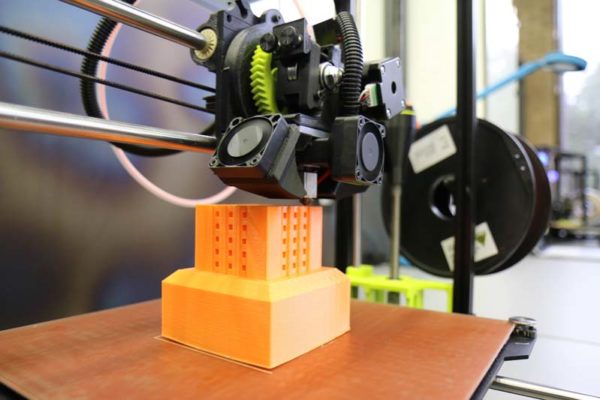As technology continues to play a more significant role in our daily lives, what role does the academic library play? Although libraries provide critical and meaningful educational opportunities, they can also educate people about the ways in which technology can be used for illicit purposes, such as printing guns that are then circulated in underground markets.
The use of 3D printers for the creation of mechanical components, including weapons creation, will only continue to expand. As hubs for technological innovation, universities and their libraries must advance policy development to address the potential campus risks created by providing access to these new technologies. Investment in and attention to policy development must be collaborative, and equal the energy invested in research and development of these technologies.
The Texas nonprofit Defense Distributed recently made specifications for 3D-printed guns available through its website. Many gun rights advocates question the level of concern that has emerged from the public surrounding this issue, arguing that 3D-printed guns fall apart after only a few shots and that access to 3D printer technology is expensive and unreliable, therefore unlikely to be acquired for the sole purpose of producing weapons.
These arguments fail to address the systemic and emerging complexity of access to, and use of, guns.
Many public and private univeristies provide access to state-of-the-art 3D printing technology, much of which is accessible 24 hours a day in largely unsupervised or peer-supervised environments. Departmental labs, campus libraries, student centers and even dorms are all access points for 3D printer technology. Printing the components of a 3D gun can be accomplished with relative ease in many of these environments.
The argument that 3D printer technology is unreliable and expensive fails to address the fact that many public and academic libraries, among other facilities, provide access to these technologies for free or at reduced costs. As institutions that are charged with advancing and supporting research efforts that will serve the needs of communities, the academic library community must consider its role in supporting comprehensive gun violence education and gun policy research. We should look to build expertise, collections and technological infrastructure that not only support 21st century research needs, but that also promote civil dialogue and an informed public.
More academic library administrators should work locally with university legal departments to develop 3D printer policies that will meet the unique needs of their constituency. At the national level, formal position statements and operational policies for the provision of 3D printing services should be expanded and refined. Libaries should also begin to articulate when and whether it is appropriate to use university and library technological resources to produce weapons as part of comprehensive research studies.
The development of local policy on these issues can provide a blueprint for scaling potential solutions to a larger community. Enlisting university expertise in law, public policy, education, economics and relevant areas to study, deliberate and develop frameworks for the deployment of new technologies — especially those that carry risks such as 3D printing — should be an expectation of our role in the innovation pipeline.
More universities should allocate strategic resources for the purpose of investigating the facets of gun violence. This should be done with the same fervor that is applied to the pursuit of commercial enterprise development.
We have a moral obligation to make meaningful contributions to ongoing discussions about how we wish to responsibly use new technologies. Libraries have the potential to initiate and steward discussions surrounding the complex intersection between new technologies and gun violence. They should be at the forefront of promoting gun policy research, not only for the safety and enhancement of their local communities, but also for the advancement of civil dialogue.
Amber Welch is the head of technology-enhanced learning at The University of Texas at Austin Libraries.
A version of this op-ed appeared in the San Antonio Express News and the Abiline Reporter News.
To view more op-eds from Texas Perspectives, click here.
Like us on Facebook.




